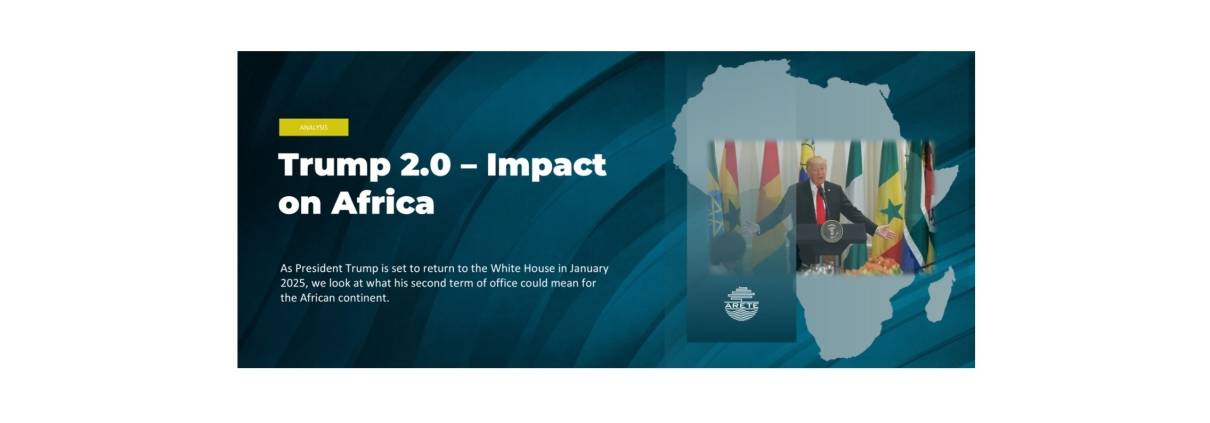Trump 2.0 – What Does it Mean for Africa?
The imminent arrival of President Elect Donald Trump in the White House is anticipated to trigger significant change in US foreign policy. This analysis presents a snapshot of the key issues that may impact Africa, with a focus on how the new administration may interact with African nations and the wider continent during President Trump’s next four years in power.
During his first term, President Trump’s approach to dealing with Africa could be characterised as indifferent, nevertheless, he remained a pragmatist and pursued economic and trade deals with African states when they were advantageous to the US and imposed restrictions on trade when it was directly harmful to the US.
Noting that US foreign direct investment in Africa decreased significantly during his last term in office, i.e., from $50.4 billion in 2017 to $43.2 billion in 2019, trade relations with African states actually improved reaching US$40.9 billion before sliding to US$32.7 billion when the pandemic hit in 2020.
This economic stance, coupled with a hostile immigration policy (President Trump’s stance on restricting immigration, particularly from Muslim countries, was a mainstay of his last election victory as well as with his latest one), arguably led to a diminishing of US influence across the continent.
If this is not to be repeated more focus will be required from the new Trump administration noting it will be facing a far more complex global political and economic landscape than during President Trump’s first term in office.
Noting China’s ever increasing Foreign Direct Investment, President Trump is also likely to focus on containing and reducing China’s economic expansion, as well as that of other competitors in the BRICS group of nations, and this will likely manifest in his administration pursuing economic interests in African markets far more than his last term in office.
One key area of note is the future of the African Growth and Opportunity Act, which expires in 2025. This current free trade deal will possibly be abandoned in favour of transactional bilateral deals with individual states, allowing President Trump to pursue his “America First” policies more selectively. African nations that are rich in resources, such as the major oil producing nations of Nigeria and Angola, will likely remain the focus of US trade policy.
From a security perspective, and noting President Trump’s “America First” stance, it has been speculated that his administration may be less inclined to interfere in African states where human rights and democracy abuses may be taking place. This approach may serve to weaken political accountability, and negatively affect governance standards where democracy is already weak or absent.
With regards to regional threats from terrorism, during his first term in office, the US maintained a robust counterterrorism presence in Africa, particularly in the Sahel and the Horn of Africa. Much of the US effort in the Sahel has now ended or reduced in scale, however Trump 2.0 could see a new focus and increased military support for regional counterterrorism initiatives. This might see Washington focus on key allies including Nigeria and Kenya, but will probably not include US ‘boots on the ground’.
In conclusion, Trump 2.0 will likely force numerous African nations that are secondary to US interests to look inward as US aid and engagement shrinks – noting President Trump’s favouring of investment over aid. This will force African leaders to reconsider strategic partnerships, particularly how best to secure investment, maintain political stability, to address the continent’s long-term development needs through inward-looking strategies. In the long-term, this may be advantageous for Africa, driving the development of democracy, statecraft and economic strategy in many countries. However, the short term is likely to be very bumpy for a number of nations.


